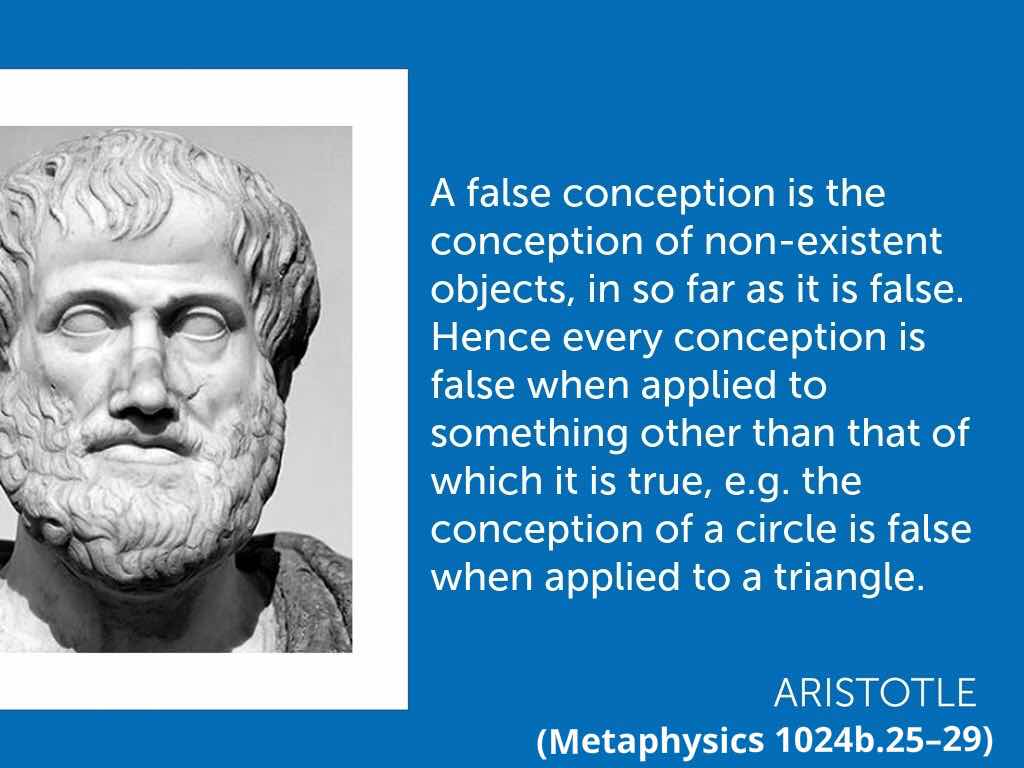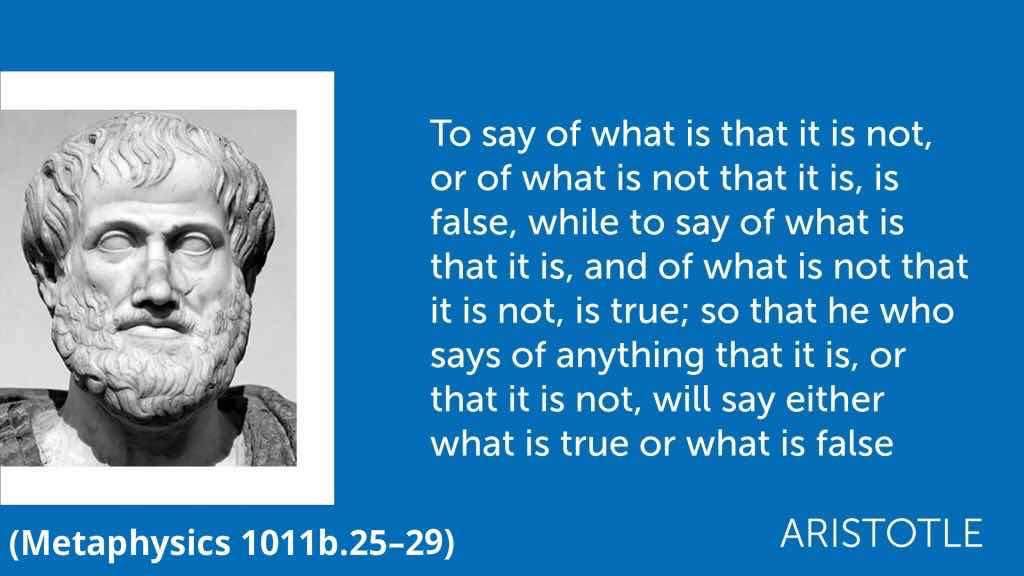
I think that one of the beginnings of error—potentially leading to heresy and/or schism—is forgetting we can err. By this, I mean that when we think that things
should operate in a certain way but do not consider the possibility that we have misunderstood either the teaching we use as a yardstick or the statement that we measure against it, we have a false conception.
This can happen in different ways. Aristotle—in the quote to the left— uses the example of geometry. It can happen by drawing false analogies from a misunderstanding of history. It can happen by classifying philosophical or theological topics as scientific and claiming that science “refutes” the existence of God. Or by using political views to interpret science.
What is dangerous is when our false conception is used to refuse the authority of one who does know the truth. The greater the damage caused by the false conception, the more dangerous it is. Thinking that a soda has the same effect on the body as water—despite warnings to the contrary—is (usually) a minor harm. Rejecting warnings that H2SO4 does not have the same properties as H2O is much more serious, and very likely fatal. Once we get into the realm of what happens to our immortal soul, the consequences for rejecting one who knows can reach the level of eternal salvation and eternal damnation… consequences that are much more serious than a matter of life and death.

Every heresy and schism starts with a false conception. The nature of God, the nature of Christ, the nature of Scripture and Tradition, the nature of Faith and Works, the nature of male and female, etc. When a person goes wrong on these things, they will wind up saying what is false. But if they speak falsely on a matter of salvation—regardless of whether or not they think it’s true—they can do something that is deadly (mortal) to their soul or the souls of others.
Men like Arius and Nestorius, Luther and Calvin, the modern anti-Francis Catholics and those who opposed his predecessors have reached a false conception on some essential truth. But it isn’t just an individual false conception. These individuals also rejected those who do teach the truth when the teachers said their ideas were false. Worse, they misrepresented the words and actions of the teachers to undermine people’s trust in them, leading the people astray.
Catholics should know that the teacher I am referring to is the Catholic Church, giving binding teaching with Christ’s authority and protection (Matthew 16:18-19, 18:18, 28:18-20). Our Lord made obedience to this Church necessary (Matthew 18:17, Luke 10:16, John 20:23, 1 Timothy 3:15), and to reject her is to reject Him. Since it is the magisterium—the Pope and the bishops who teach in communion with him—that binds and looses, refusal to obey is schism and the obstinate rejection of what the Church teaches is heresy.
The person who knows that the Catholic Church is the Church established by Christ, but refuses to listen, or remain within the Church is doing something much more foolish than the person who ignores the warning about H2SO4. He is not merely risking his life. He is risking his immortal soul. It is true that a person who has invincible ignorance—not knowing and having no way of knowing something—has reduced culpability for the wrong done. But as Gaudium et Spes #16 puts it:
Conscience frequently errs from invincible ignorance without losing its dignity. The same cannot be said for a man who cares but little for truth and goodness, or for a conscience which by degrees grows practically sightless as a result of habitual sin.
We must be careful to remember that the Catholic who doesn’t look to the Church for the proper understanding of the teaching they use as a yardstick is not taking the proper care for truth and goodness. If they persist in rejecting the Church, they might grow blind to their errors and not realize it.
It is not for me to judge the individual here. Whether you, or somebody you know, might be in that situation is beyond my capacity to judge. I am a member of the laity with no authority to bind or loose. I am not God that I can look into your soul.
All I can do is to ask everyone this: when one is scandalized by something in the Church, please remember that the authority of the Church to teach and Our Lord’s protection is not negated by the sins of the men who are Popes and bishops (cf. Matthew 23:2-3). If a person is tempted to think that the Church must be wrong because what she teaches doesn’t square up with an individual interpretation, such a person should remember: in the history of the Church, there were many Catholics who believed the same thing… and wound up in heresy or schism.

